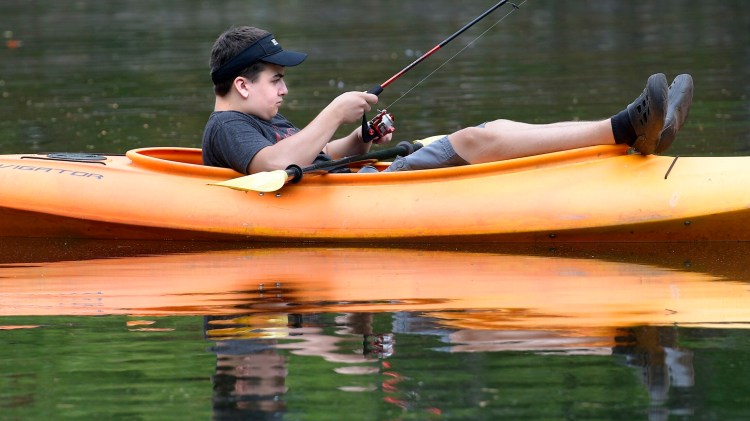The outdoor recreation industry makes up a larger percentage of Maine’s economy than in almost any other state, according to federal data released Friday.
Boating, hunting, camping, skiing and dozens more outdoor pursuits contributed about $2.9 billion to Maine’s $64 billion economy in 2017, almost 5 percent of the state’s gross domestic product, according to state-level data from the Bureau of Economic Analysis. And the GDP impact of outdoor recreation in Maine is more than twice the national average.
Only in Hawaii and Montana did outdoor recreation make up a larger portion of the state economy. This is the first time such figures have been published.
“To us, it shows outdoor recreation is valuable to the economy and Maine, it shows we have a strong and growing recreation economy here,” said Jenny Kordick, executive director of Maine Outdoor Brands, a trade group of 60 Maine companies.
“This data really is critical for us to advocate for the importance of the outdoor recreation industry and have a discussion with policy makers about how to strengthen this sector,” Kordick said.
The outdoor recreation data was compiled from existing statistics on the state and national economy. It includes the economic impact of conventional outdoor activities, such as hiking, skiing and snowboarding, hiking, ATV riding, hunting and fishing. But it also encompasses other parts of the economy like amusement parks, gardening, golfing and tennis, and outdoor festivals, as well as construction, shopping and lodging that support the activities.
In Maine, conventional activities outweighed others, generating about $905 million in economic output in 2017. Boating and fishing, hiking, camping and climbing and RVing accounted for the bulk of economic impact, according to the data.
More than 40,700 people were working in outdoor recreation, about 6.4 percent of the state’s employed workforce, tying Maine with Alaska for the third-largest proportion of its labor force employed in the sector behind Wyoming and Hawaii.
The new federal numbers support the idea that Maine’s natural resources can provide a catalyst for bigger economic impact, said Carolann Ouellette, director of the state’s recently-create Office of Outdoor Recreation.
“I think that there are a lot of people and businesses and nonprofits in the outdoor recreation space, and I think this is a nice way to collectively show the impact,” she said.
Expanding companies have said opportunities to get outside is important to the work-life balance employees want, Ouellette said. Outdoor pursuits are important for rural development and personal health, she added – approximately 70 percent of Mainers participate in outdoor recreation each year.
“We know this is something that helps to create healthy communities and a healthy economy,” Ouellette said.
Local and national policymakers have increasingly regarded the outdoor industry as an important part of the economy. Utah was the first state to establish an office of outdoor recreation in 2013, but now 13 states have similar offices and at least two more have task forces aimed at outdoor recreation.
The Outdoor Industry Association, a national trade group, has constantly pushed the idea that the industry is an economic powerhouse and worth supporting, said Samantha Searles, the association’s director of research.
The association regularly produces its own economic impact reports, looking at direct consumer spending, instead of GDP. Searles thinks the association’s studies and messaging helped push federal lawmakers to pass a bill in 2016 directing the Bureau of Economic Analysis to take a closer look at outdoor recreation.
Passing that law “just brought to the forefront that the outdoor industry is not just a bunch of dirt bags rock climbing and living out of their van,” Searles said.
“There is a lot of money in this industry and a lot of value to supporting it at the local and federal level.”
Comments are not available on this story.
Send questions/comments to the editors.



